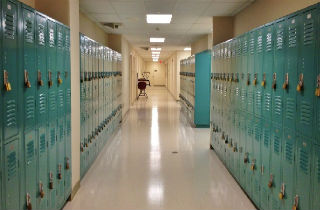Every day, parents send their children off to school in hopes that they will receive an education. The goal is that your kid graduates and goes on to lead a successful and productive life. But what happens when the education your teen is receiving is not in academic subjects but in much more dangerous topics, such as drug use in school?
Read on for data about addictions teens may be witnessing at your local schools. Then, we invite your questions and comments in the section at the end.
Statistics on Drug Use at School
The following statistics from the federal government on drug use on schools in 2007 show the seriousness of drug use on campuses.
1. The number of students in high school who stated that someone gave, offered or sold them illegal drugs while at school during that year was 22%. This number had not changed significantly since 2003.
2. Almost three million teens use drugs during school hours; most teens know who sells drugs.
3. The drugs most commonly abused by high schoolers are:
- Alcohol
- Marijuana
- Prescription medications
Reasons Why Teens Use Drugs at School
Some of the reasons include:
- curiosity
- enjoyment
- peer pressure
- self-medication
- rebellion
Are schools addressing the problem?
While the school is responsible for keeping the campus safe and addressing any known drug use during the school day, they simply do not have the proper resources to constantly police the campus, looking for offenders. Rather, their role is to react to any warnings of possible drug activity and deal with the problem accordingly.
More effective measures of reducing drug addictions that teens may be witnessing at local schools include the following:
1. Drafting drug contracts with students to prevent use.
2. Education and information in class and school assemblies. While most teens will dabble in alcohol and drugs, ad few will become addicted and suffer the related consequences. A teen who has more information about the possible dangers of drug use and the associated health issues might tend to stay away from drugs.
3. Alternative activities to help teens stay active
4. Parental involvement. Open and continued communicate with your teen will help keep him out of trouble. Parents cannot overemphasize the serious risks and dangers of using drugs and should regularly address the subject.
Further Steps that Parents Can Take
Ultimately, parents are responsible for their children, even as teens test the limits and push boundaries. To help keep kids safe, parents can proactively take the following steps.
- Develop a pattern of open communication with your child.
- Establish expectations, boundaries and rules. Be prepared to enforce them. Work with the other parent as much as possible to present a united front.
- Include a policy where you can pick up a child from anywhere at any time. Delay addressing the problem and consequences for 24 hours in order to allow a better perspective.
- Encourage involvement in sports, music, arts and outside activities.
- Educate yourself on the dangers of drugs and signs of possible drug use.
- If you discover that your child is using drugs, remain calm and lovingly express your concern. While you are understandably angry and upset, threats and yelling will not help your teen.
- Address underlying problems, such as rejection, a significant move, anger or other issues that might have caused the drug use.
- Keep tabs on your teen, his friends and possible hiding places for drugs as part of the consequences for drug use.
- Seek outside help from a family friend, coach, physician or professional in the field.









Related Posts